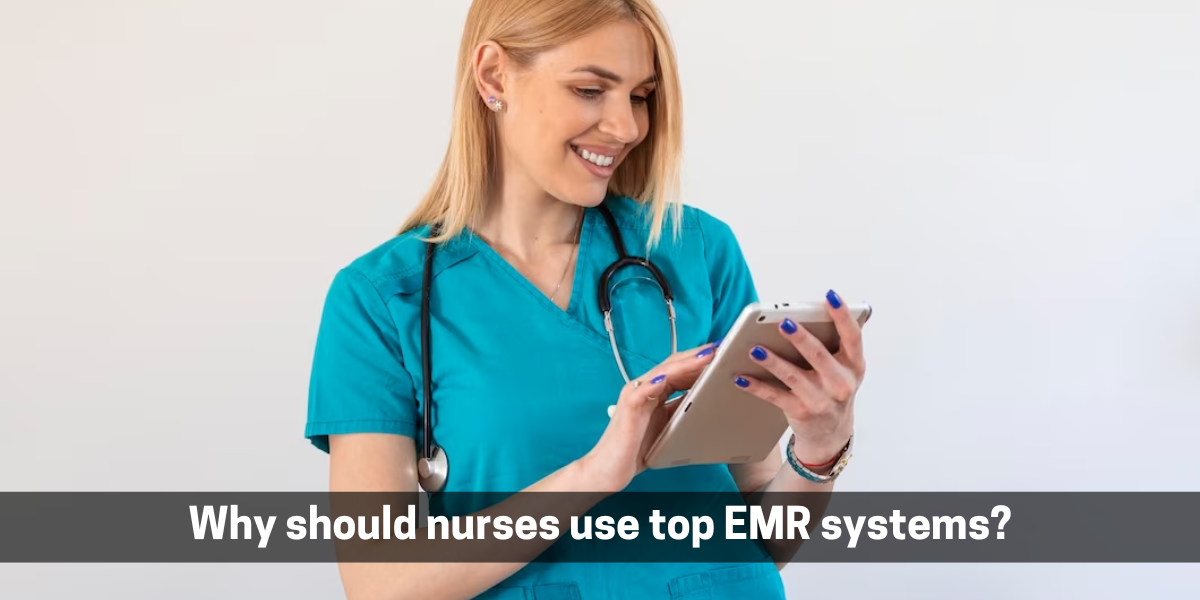Nurses work in a fast-paced and demanding environment, often with limited resources and long hours. They must be able to think critically, make quick decisions and communicate effectively with patients and their families. Also, nurses often struggle with manually checking paper-based medical records, which can be time consuming. This is because they must physically locate and review the appropriate documentation in order to provide patient care. The process of locating the necessary information can be slow and inefficient, especially in emergency situations where time is of the essence. In addition to this, paper-based records are more prone to errors and can be sometimes difficult for nursing staff to read, leading them to misinterpret patient information. As technology continues to advance, many healthcare organisations are switching from paper-based medical records (MRs) to top EMR systems ( electronic medical records) in order to mitigate these challenges and improve patient care.
An EMR refers to a health information technology solution, such as a software or platform, used by healthcare providers to record a patient’s diagnoses and treatments. Essentially, EMRs are digital versions of a patient’s medical paper charts. They are a digital record of a patient’s medical history, including their diagnoses, medications, treatment plans, immunisation dates, allergies, lab results, medical images, test results and other relevant information.
Here we discuss some of the benefits of top EMR systems and why should nurses use EMR?
- No more misfiled or lost charts with an EMR system. Traditional paper charts can be difficult to locate, as human error can lead to misfiling or charts being in the wrong location. This can hinder workflow and cause delays in patient care. With an EMR system, charts are available electronically and can be accessed by multiple employees simultaneously, increasing office efficiency and eliminating the risk of lost or misfiled charts.
- EMR systems improve productivity and efficiency by reducing paperwork. This leads to fewer documents for nurses to fill out, giving them more time to see patients. Also, continuous data collection enables nurses and healthcare providers to deliver personalised care and address health issues in a preventive manner. EMRs can identify patients who are due for preventive care services such as mammograms, colonoscopies or immunizations. By tracking patients’ health histories, EMRs help nursing staff and healthcare professionals to monitor and address potential health issues before they become severe. This timely and proactive approach allows healthcare professionals to provide more personalised care that is tailored to each patient’s individual needs.
- With a single patient view, nursing staff can work remotely and access patient information from any location, at any time. This is especially helpful for nursing staff who work in multiple facilities or work in different wards. They can quickly access patient files and update medication orders or review clinical notes, allowing them to prioritise their work efficiently, even when they are not physically present at the patient’s location.
- Nursing staff have to ensure that patients receive the necessary care even after they are discharged. This includes following up on treatment plans and ensuring that patients stay on the appropriate course of care. An effective EMR system can play a crucial role in achieving this goal. Incomplete discharge protocols can result in harm to patients, making it essential to transfer patients to post-hospital care in a timely and appropriate manner. With an EMR system in place, discharge summaries can be initiated as early as admission, facilitating a smooth transition to post-hospital care.
eMAR (Electronic Medication Administration Record) is a part of the EMR system. It helps the staff digitally record the administration of medication, including the dose, route and time of administration. It helps the nursing staff ensure that patients receive the correct medication and dosage, and can alert them to potential interactions or allergies. To know more about the benefits of eMAR for nursing staff, book a demo today.







